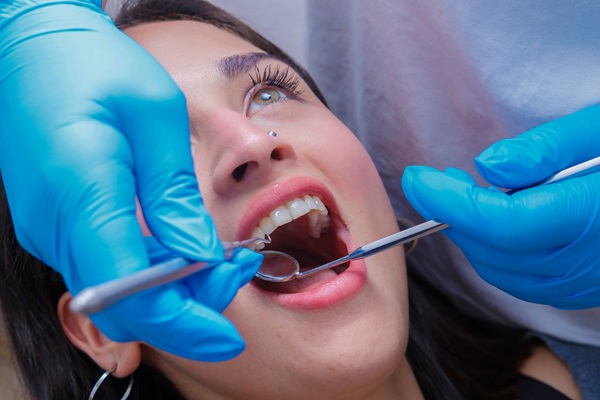Can a General Dentist Administer an Orthodontics Treatment?

Orthodontics treatments involve the alteration of the teeth, the jaws, and the soft tissues that connect the two. These alterations can improve the alignment of said teeth and jaws. The resulting aesthetic and oral health benefits of orthodontic treatment are worth the time and effort of the process.
Moving different teeth to optimal positions requires a precision that comes with experience and innate skill. Reshaping a jaw to improve its form and function also takes skill and experience. So, can a general dentist administer orthodontics?
The different faces of orthodontics
The main way that dentists create a straight, pleasant smile is with the use of gentle, constant pressure. This pushes the teeth into optimal positions at a steady yet gradual pace. As the teeth shift, the jawbone breaks down and rebuilds itself to accommodate the movement of teeth roots. Dentists often prescribe specific orthodontic appliances, like braces, headgear, and jaw expanders, to realign the teeth and jaws.
Patients with severe orthodontic problems may need a more aggressive approach. Some may need a tooth extraction to correct overcrowding. Others may need corrective jaw surgery to treat severe jaw malformation. Still others may need the installation of a temporary dental implant to put pressure on specific teeth.
Orthodontics is a wide field that caters to patients with diverse needs. As such, dental professionals who provide orthodontic treatment need one or more skill sets. Some require surgical skills, while others need to be able to plot tooth and jawbone movements over the course of treatment.
Role of the general dentist in orthodontic treatment
A general dentist offers the first-line treatment and support. They offer preventative treatments, like routine checkups and teeth cleanings, to ensure good oral health. They can detect dental and oral problems in their early stages. In most cases, the general dentist will correct simple problems with restorative dentistry or with dental procedures, like root canals. The role of a general dentist as a first-line dental health provider also allows them to provide important orthodontic treatments.
1. Detection and monitoring
Regular checkups allow a dentist to spot problems in their early stages. A general dentist can detect an emergent bad bite that results from an accident or teeth grinding. In the case of children, a general dentist will monitor the growth of both their primary and permanent teeth. If the dentist detects a bad bite, they will keep tabs on the child’s teeth until the child is old enough for further treatment. For children and adults alike, a diagnosis for orthodontic problems should be the first step of treatment.
2. In-depth diagnosis
Diagnosis starts at the detection stage. It continues with medical imaging, a tool that allows the dentist to pinpoint the root cause of their patient’s orthodontic issue. An X-ray or a CAT scan will provide information that allows the dentist to chart a course of action.
3. First-line orthodontic treatment
Some patients require simple orthodontic treatments. A general dentist with the right training can oversee teeth straightening with braces. The dentist can also extract a tooth to correct crowding. They can recommend veneers or crowns for patients who need a smile upgrade.
Let our dentist chart your journey to an improved smile
A general dentist should be your first point of contact when you seek dental care. Our dentist will perform a comprehensive evaluation that will lay the groundwork for a healthy smile. If orthodontics is the ideal treatment, the dentist will walk with you through every step.
Request an appointment here: https://albuquerquedentaldesign.com or call Family & Cosmetic Dental Design at (505) 883-3722 for an appointment in our Albuquerque office.
Check out what others are saying about our dental services on Yelp: Orthodontics in Albuquerque, NM.
Recent Posts
Have you chipped a tooth? Read on to learn about the importance of prompt treatment for chipped teeth. You need to reach out to a dental office immediately if you have a chipped tooth. Otherwise, the issue might worsen over time and become more serious. The dentist will examine the tooth and recommend restorative treatment…
Dental bonding and teeth whitening are common dental procedures that improve the appearance of your smile. However, some patients are concerned that their teeth may not have the same shade after teeth whitening, particularly if they have had dental bonding on one or more teeth. This review helps patients deal with this concern. Understanding the difference…
For tooth loss, partial dentures are a good treatment option. This appliance not only revives your smile and appearance, but it can have health benefits as well. Your dentures allow you to chew effectively again and eat healthy foods. Replacing missing teeth will also help to prevent additional tooth loss and bone loss. A partial…
Same-day crowns are now achievable due to CEREC® technology, which combines modern technology with significant advances in dentistry. Patients with fragile, fractured, damaged, or broken teeth may now have their dental condition assessed and even get a new dental crown designed and installed during one visit to the dentist's office. If you are considering CEREC…


